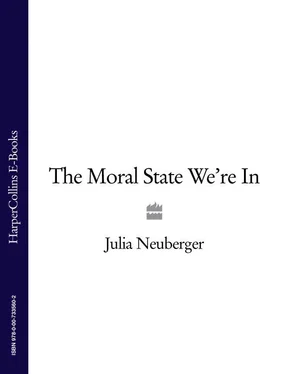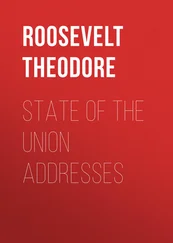Those in favour of euthanasia argue that it might be easier if older people, instead of costing the country so much, could simply ask to have themselves put quietly and painlessly to death before the money runs out. The argument is rarely spelled out that way. But remember the story of the dog, the cat, the donkey, and the cock at the beginning of this chapter. Their owners thought them useless and felt that it would be fine to finish them off. We are not the owners of our older people, but as a society we see them as a problem. Hence the political issue that has blown up over long-term care for older people, which the Labour government promised to sort out on coming to power in 1997. It soon realized that this was a truly difficult task because of the conflicting and complex moral and financial arguments. Are older people entitled to free care by virtue of being old? Or should they pay for their care on the grounds that it is an unreasonable burden to place on the younger people who will end up paying the bill? Should they, in fact, regard it as a normal part of the costs of life?
In this climate of concern about ageing and its costs, the Patient (Assisted Dying) Bill was introduced in Parliament in February 2003 by the cross-bencher peer Lord Joffe. As it did not have government support it had virtually no chance of becoming law. Nevertheless, it was seen as an opportunity to air, once again, the complex and varied views held by all kinds of people and organizations on the subject. It had its second reading, unopposed, in accordance with tradition, in June 2003. After that, significant changes were made to it, to deal with some of the objections. These reduced its scope in a variety of ways, including limiting application of the Bill to terminally ill patients and stating that in assisting someone to die the attending physician might only provide the means to end the person’s life, unless the latter was physically unable to do so, in which case the physician could become actively involved. The idea that the physician would only provide the wherewithal, rather than actually kill the person, had considerable attractions for some objectors to the original Bill, since it largely removed the great problem of doctors killing their patients, rather than attempting to heal them or temporarily alleviate their suffering. The changes also included additional safeguards, requiring a specialist to attend the patient to discuss the option of palliative care. After all this, and with these changes, the Bill was reintroduced as the Assisted Dying for the Terminally Ill Bill, in January 2004.
In March 2004, there was a second-reading debate in the Lords and the Bill was sent to a select committee, and it began to look as if it might become law. At that point, Lord Joffe suggested that the select committee might wish to consider the current experience of assisted dying in the Netherlands and Oregon, in particular whether vulnerable members of society had been put at risk and whether doctor/patient relationships had been adversely affected. He also suggested it would be worth examining whether palliative care could, in all cases, enable terminally ill patients to die with dignity and free from unnecessary suffering. He further asked for the committee to look at whether recent polls showing that 80 per cent of the public supported assisted dying reflected public opinion accurately. Finally, the committee was to examine whether the safeguards contained in the Bill to protect vulnerable members of society were adequate and, if not, what further measures might be necessary. The Joint Committee on Human Rights, in its report on 23 March 2003, was of the view that they were, but the Bill’s opponents were not persuaded.
The aim of the Bill was to enable a competent adult, suffering unbearably as a result of a terminal illness, to receive medical assistance to die at his or her own considered and persistent request; and to make provision for a person suffering from a terminal illness to receive pain relief medication. The main argument made in favour of the Bill was that attitudes had changed in the ten years since the possibility of helping terminally ill people to die was last considered by the House of Lords Select Committee on Medical Ethics. Ten years on, Baronesses Jay, Warnock, and Flather, formerly opposed to assisted suicide, were now supporters of a change in the law.
Secondly, it was argued that there has been a change in public opinion, particularly after the Diane Pretty case (Ms Pretty died in May 2002, three days after the European Court of Human Rights ruled that her husband could not legally help her to die). Thirdly, changes to the law in Belgium, Holland, and Oregon have apparently worked out well, with no real indication of the predicted dangers associated with assisted suicide actually materializing. For instance, the Dutch government’s Remmelink Report found no evidence of vulnerable people being put at risk or of increases in voluntary euthanasia in the previous five years. (It does have to be said, however, that supporters and opponents of the Bill infer different conclusions from international experience.)
Fourthly, people are able to travel to other countries, such as Switzerland, for assisted suicide, which those who support a change in the UK legislation regard as unreasonable. Fifthly, it gives choice to the patient rather than to doctors or society, a point made strongly by Baroness Flather. Indeed, the newly published Good Euthanasia Guide by Derek Humphry, a former Sunday Times journalist now based in Eugene, Oregon, suggests that personal choice is a powerful factor.
The main arguments made against the Bill were that there is still continued opposition from the British Medical Association (BMA) and the Royal Colleges, which is a real problem since a change in the law could only be effected with the support of doctors. Secondly, it was seen as ‘disastrous’ for ‘the terminally ill, the elderly, for disabled people, for the medical profession and for wider society’ by many peers, including Lord Alton of Liverpool, whose exact words are given here. Thirdly, it is seen as brutalizing society, with some drawing parallels with the death penalty and others arguing that the Bill would put pressure on all seriously ill people to consider assisted suicide, even if they had never previously considered such an idea.
Some argued that patients might feel obliged to choose assisted suicide for the ‘wrong reasons’, such as to avoid being a burden to others, or because of concerns about the financial implications for their families of a long terminal illness. Some also argued that it would create a ‘negative climate’ towards terminal illness, and that sick, disabled, and frail people might be made to feel even more acutely that they are a burden on society and on their relatives. Other objections centred on problems of definition: what is a terminal illness, particularly when some diagnoses prove to be incorrect and patients live much longer than predicted? Then it is often the case that seriously ill people are depressed, which might impede their ability to make rational decisions. Amongst the weightiest objections was the classic one from many healthcare professionals: that the legislation might affect patients’ trust in their physicians and thus alter the fundamental ethos of the medical profession–a view held by the BMA. Indeed, doctors generally remained opposed to the Bill.
Meanwhile, some argued that the proposed legislation placed too great a responsibility on doctors and that the benefits to the individual would be outweighed by the potential harm to society at large. Many also argued that the Bill was unnecessary because physicians can already relieve the pain of their patients, even if pain relief has the foreseen but unintended effect of shortening life. It was also suggested that the Bill would be impossible to police and would lead to more involuntary killings–the slippery slope argument. Then it was argued that such legislation would be seen as unacceptable to some faith communities and religious leaders: ‘Euthanasia is an act of violence, an attempt to take possession of the future…even if euthanasia were legalised in some form and pragmatic anxieties overcome, it could not be a course of action endorsed by Christians.’ *It was also argued that that the insurance industry would be unlikely to accept the provision that no life insurance that has been in force for twelve months would be invalidated by a doctor having assisted a patient to die. Lastly, it was argued that the Monitoring Commission proposed in the Bill would be costly and that it would be difficult, if not impossible, to detect subtle coercion, pressure, or clinical errors after the event.
Читать дальше






![Nicholas Timmins - The Five Giants [New Edition] - A Biography of the Welfare State](/books/701739/nicholas-timmins-the-five-giants-new-edition-a-thumb.webp)





